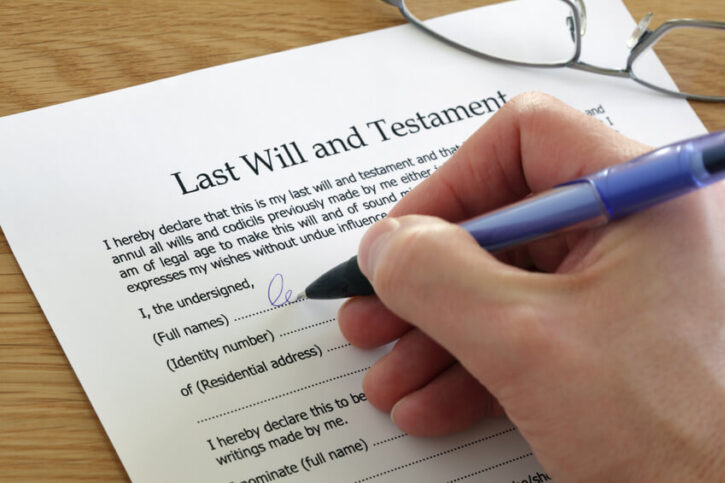
Source: hede.com.au
Everyone’s death is a personal loss, and no one knows that better than lawyers. When it comes to making a will, they know how to make the process as smooth and painless as possible. This is why you might not think you need a lawyer, but you might actually need one if you have any complex estate planning needs. So whether you need help with taxes or just want someone to look out for your best interests, a lawyer is always a good idea.
What is a Will?

A will is a legal document that tells your loved ones how you want your assets distributed after you die. It’s important to have it if you’re not sure whether you should make one, or if you’ve changed your mind about what you want to happen to your assets. You can make it either with the help of a lawyer or without one. There are some important things to remember when making wills and trusts, even if you don’t have legal advice.
If you’re making it without legal advice, it’s important to keep these principles in mind:
- Make sure it is valid – Make sure the wording of your will is correct and complies with state law. If it doesn’t, your lawyer may be able to help you fix it before filing it.
- Protect yourself and your loved ones – name specific people who should receive your assets if you die without a will, and make sure they know about it.
- Don’t forget about taxes – Your estate may have tax consequences depending on how much money and property you leave behind. Make sure you understand the implications of each decision you make in relation to your estate taxes. Discussing these issues with an accountant can help ensure that everything goes as planned upon your death.
- Make sure your will is accessible – It’s important that anyone who needs to see it can do so easily. Keep it in a safe place, where you and your successors can access it whenever you need to.
- Don’t forget to witness – Having someone witness your signature on the will is a simple way to ensure that the document is valid. If you don’t have any family or friends nearby, you can ask a notary public to sign the document on your behalf.
When Should You Make a Will?

If you have any questions about making a will, or if you are unsure about what to do, you should speak to a lawyer. This is a legal document that states your wishes for your estate after you die. It can help to make sure that your assets (property, money, etc.) are distributed fairly and correctly. There are a few things that you should keep in mind when making your will:
- Make sure that the document is valid – Make sure the will is registered with the court and framed properly. If it isn’t registered or framed properly, it may not be accepted as valid.
- Consider who you want to inherit your estate – You should make sure that whoever you choose as your executor (the person responsible for administering your will) knows how to read and interpret it. This person also needs appropriate permissions from probate (court) in order to access any of your assets.
- Give specific instructions – Include specific instructions on what must be done with each item listed in your estate. For example, if you own property in a certain state and would like it transferred there upon death, include this information in it.
What to Include in Your Will?
If you are thinking about making a will, there are many things you need to consider. While there is no legal requirement to have a will, it can help you ensure that your assets and wishes are protected if you die without a will. Here are some tips on what to include in your will:
- Make sure your testament is clear and concise. This is the most important part of your will – make sure all of your wishes are recorded clearly.
- Include any property you want to leave behind as well as any debts or financial obligations you may have. If you have children, make sure they are aware of your wishes regarding their inheritance.
- Consider who should receive communion after you die – this can be important for religious families. If there is someone special in your life that you would like to remember, include them in it too.
- Decide whether or not to make changes to your will after you’ve made it – this can be helpful if something happens during your lifetime that affects the way your will is written (for example, if property changes hands). However, be careful not to make any changes that could invalidate the document altogether.
Choosing an Estate Planning Attorney

If you’re contemplating making a will, you’ll want to speak with an estate planning attorney. An attorney can help you create a will that meets your specific needs and protects your assets. There are a few things to consider before selecting an attorney:
- Location – The lawyer you choose should be in a location where you can easily access them.
- Fees – Fees vary based on the complexity of the will and any estate taxes that may need to be paid as a result of it.
- Experience – Make sure the lawyer has experience drafting wills and other estate planning documents.
Conclusion
In this article, we have discussed whether or not you need a lawyer to make a will in the year 2024. After reading through this guide, we believe that many people would benefit from engaging a legal professional to help create their will. There are so many aspects to consider when making a will, and without the help of an attorney, it can be easy for mistakes to be made.









